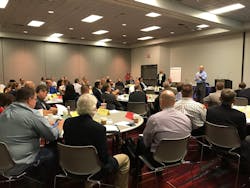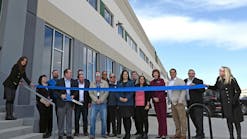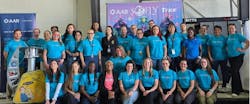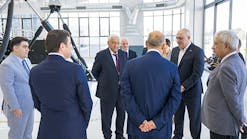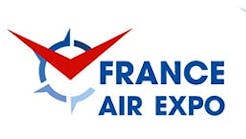Today, leadership is taking on a new meaning. Not only are there many changes happening around the globe and in the business environment, but there are changes occurring in our aerospace industry and more specifically in the business and general aviation industry. Some of the changes are obvious: technology around us and in the aircraft, global business dynamics, the shortage of qualified pilots and technicians, social dynamics, and demographics, just to name a few. But, there are more subtle changes as well: the culture of business aviation is changing; our passengers and their expectations are changing; the C-Suite and the way a flight operation is viewed are changing; the value proposition for business and private aircraft is shifting.
One change that is worthy of examining is the impact of technology. We have never experienced technology change as we are today. Changes in technology are profound with many tentacles growing fast and furious into our daily lives. These changes impact us from numerous directions and ways. The changes today are incredibly dynamic and with speed we have not previously experienced. The majority of the technological changes are now impacting our human senses and how we view social aspects, as well as how we view job performance and work essentials. These elements of technology have never been so far reaching. The issues of human factors are even more complex and dynamic. This is an element that needs and requires leadership to guide our industry teams and organizations through the many challenges and opportunities that advanced, improved and fast-moving technology present to us.
Who’s leading and managing all of this? Are we developing our industry’s leaders to address these fundamental fast-moving changes? Today’s leadership requirements are vastly different from that of even five years ago. If we go back, 10 to 15 years ago, we are looking at incredible transitional and transformational changes in our industry. Some we welcome, some we don’t. However, as leaders, we have to address all issues, regardless of what we like or what we don’t like. All of this, necessitates changes in how we LEAD.
People Issues
One example that continually rises to the surface is, people issues. People on our teams and people who we serve. Traditionally, we have assumed people issues to be addressed by our technical proficiency and know-how. However, one of the changes that we are dealing with is the fact that more and more of us take technology for granted. We view it as a basic requirement. Less and less people celebrate a good take off, a good smooth flight, and a good landing. These are basic expectations. But if someone ignored me or was grumpy or in a bad mood or a seatbelt buckle was smudged, then the aircraft user may form negative opinions of our performance. Today’s user perspectives are largely different toward flying as we knew it. The complexity of aircraft operations seem to have shifted to complexity of people issues.
People management (on all sides) is becoming more and more a part of a leaders’ job, today. People issues can morph into many unpleasant and unnecessary difficulties. In an age when we have a tough time finding qualified people to hire. Yes, we need to find ways to attract and find the type of skilled individuals who are going to help us. But we also need to lead engagement and development of a culture which helps to keep people (our teams) engaged and vibrant. We need this to help navigate the advent of technology and people issues. The good news is, we have answers and options. The bad news is, that it takes time and it challenges our conventional thinking about leadership development. First step: let’s agree that we are in need of change in the way we build the future, let’s agree that we need help.
So what are we doing to develop the future leaders. Start with the fact that we need leadership more than ever. But a different type of leadership. There are far too many unknown paths in front of us.
FlightSafety International and ServiceElements have partnered to offer a new three-day leadership program for today’s leadership in our industry. It is titled: Essential Leadership Workshop for Aviation Professionals.
This program is specifically designed to address today’s industry challengers and leadership issues. We have already heard terrific feedback from participants:
Positive Feedback
"This was one of the most dynamic training sessions I have ever had. Well done."
"Really didn't expect this workshop. I was ready for a boring three days, instead it was the fastest three days of learning I have ever had."
"Great movement in flow in the workshop. Using various methods to create a learning environment."
"Very effective. I will be sending other high potential team members from our Flight Department."
"This training was like no other I have received. The class was beneficial to assisting supervisors in business aviation. I highly recommend this class to anyone in a management position to help deal with the different scenarios."
"I learned a lot - and I am energized. That is unusual for aviation training."
"This is a very refreshing way of dealing and managing our industry's challenges today."
"Everyone should attend this program. Excellent for managing today's challenges."
For more information, contact Jacque Walker at FlightSafety International’s Dallas/Ft. Worth training center, [email protected] or (972) 534-3210 or Dimana Pineo at [email protected] or (480) 538-0123.
